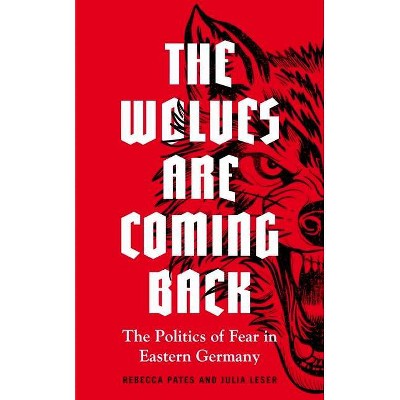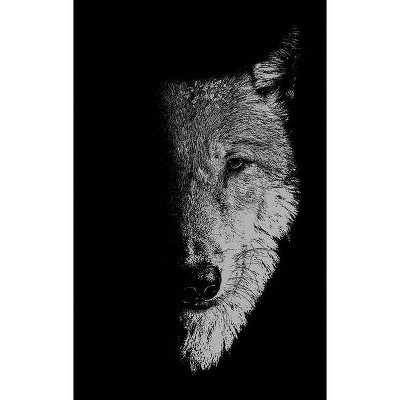The wolves are coming back - (Manchester University Press) by Rebecca Pates & Julia Leser (Hardcover)

Similar Products
Products of same category from the store
AllProduct info
<p/><br></br><p><b> About the Book </b></p></br></br><i>The</i> <i>wolves are coming back</i> moves beyond stereotypic representations of East Germany, and shines light on the complexities of post-socialist life and losses. It seeks to explain the extraordinary success of new far right parties in a vivid ethnographic recounting of the local politics of fear, hope and national identity.<p/><br></br><p><b> Book Synopsis </b></p></br></br>Across Eastern Germany, where political allegiances are shifting to the right, the wolf is increasingly seen as a trespasser and threat to the local way of life. Styled by populist right-wing actors as an 'invasive species', the wolf evokes and resonates with anti-immigration sentiments and widespread fears of demographic catastrophe. To many people in Eastern Germany, the immigrant and the wolf are an indistinguishable problem that nobody in power is doing anything about. In this account of Eastern German agitation of wolves and migrants, Eastern German hunters, farmers, rioters and self-appointed 'saviours of the nation', Pates and Leser move beyond stereotypic representations of 'the East' and shine a light on the complexities of post-socialist life and losses. As nationalist parties are on the rise across Europe, <i>The wolves are coming back</i> offers an insight into the rise of the far right in Germany. The nationalist Alternative for Germany represents the third-largest party in the German federal parliament, with representation in the vast majority of German states. They draw much of their support from the 'post-traumatic places' in Eastern Germany, regions structured by realities of disownment, disenfranchisement and a lack of democratic infrastructure. Pates and Leser provide an account of the societal roots of a new group of radical right parties, whose existence and success we always assumed to be impossible.<p/><br></br><p><b> From the Back Cover </b></p></br></br>Across Eastern Germany, where political allegiances are shifting to the right, the wolf is increasingly seen as a trespasser and threat to the local way of life. Styled by populist right-wing actors as an 'invasive species', the wolf evokes and resonates with anti-immigration sentiments and widespread fears of demographic catastrophe. To many people in Eastern Germany, the immigrant and the wolf are an indistinguishable problem that nobody in power is doing anything about. In this account of Eastern German agitation of wolves and migrants, Eastern German hunters, farmers, rioters and self-appointed saviours of the nation, Pates and Leser move beyond stereotypic representations of 'the East' and shine a light on the complexities of post-socialist life and losses. As nationalist parties are on the rise across Europe, <i>The wolves are coming back</i> offers an insight into the rise of the far right in Germany. The nationalist Alternative for Germany represents the third-largest party in the German federal parliament, with representation in the vast majority of German states. They draw much of their support from the 'post-traumatic places' in Eastern Germany, regions structured by realities of disownment, disenfranchisement and a lack of democratic infrastructure. Pates and Leser provide an account of the societal roots of a new group of radical right parties, whose existence and success we always assumed to be impossible.<p/><br></br><p><b> About the Author </b></p></br></br>Rebecca Pates is Professor in Political Science at Leipzig University Julia Leser is a Postdoctoral Researcher at Humboldt University Berlin
Price History
Cheapest price in the interval: 19.49 on November 8, 2021
Most expensive price in the interval: 19.49 on December 20, 2021
Price Archive shows prices from various stores, lets you see history and find the cheapest. There is no actual sale on the website. For all support, inquiry and suggestion messagescommunication@pricearchive.us




















